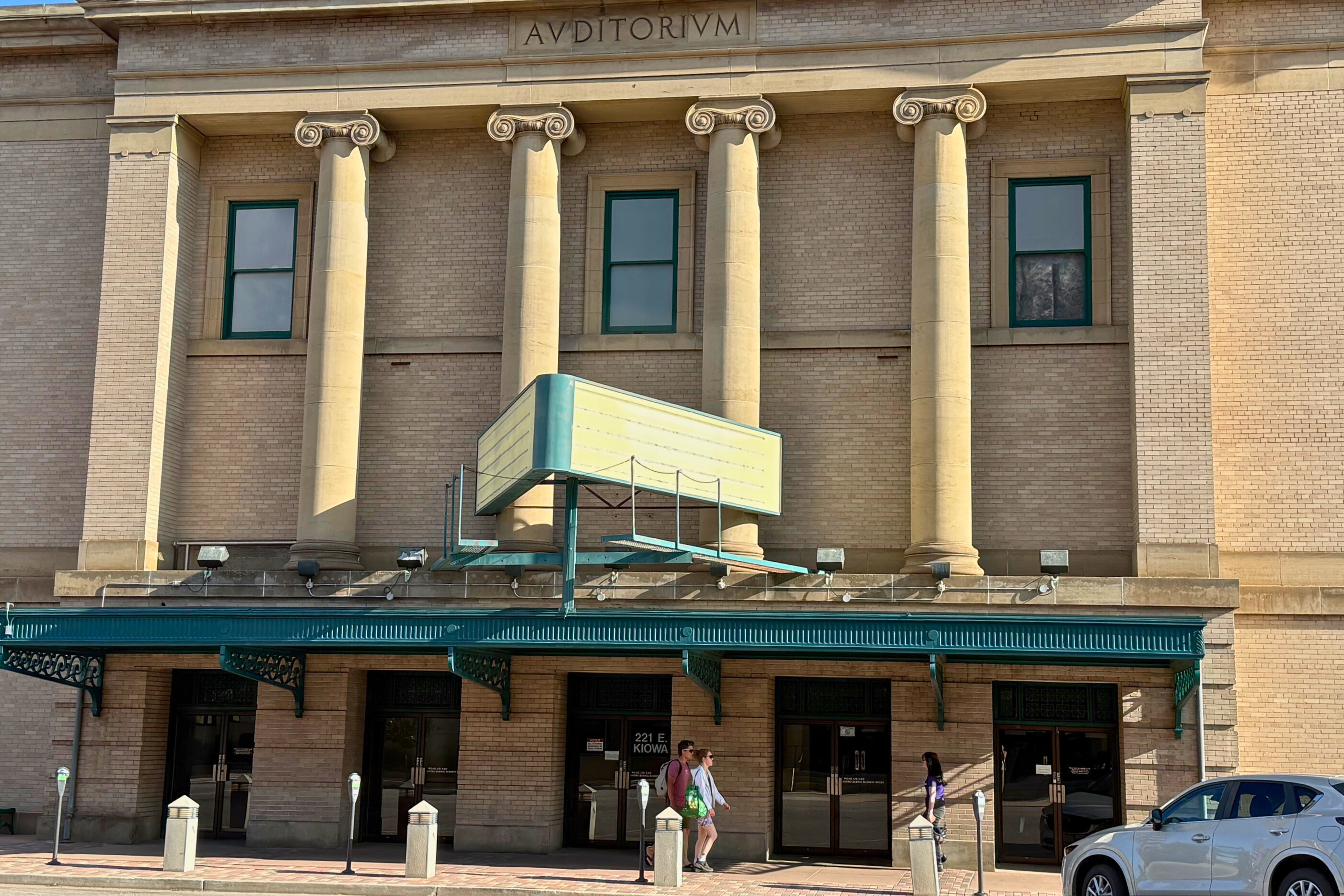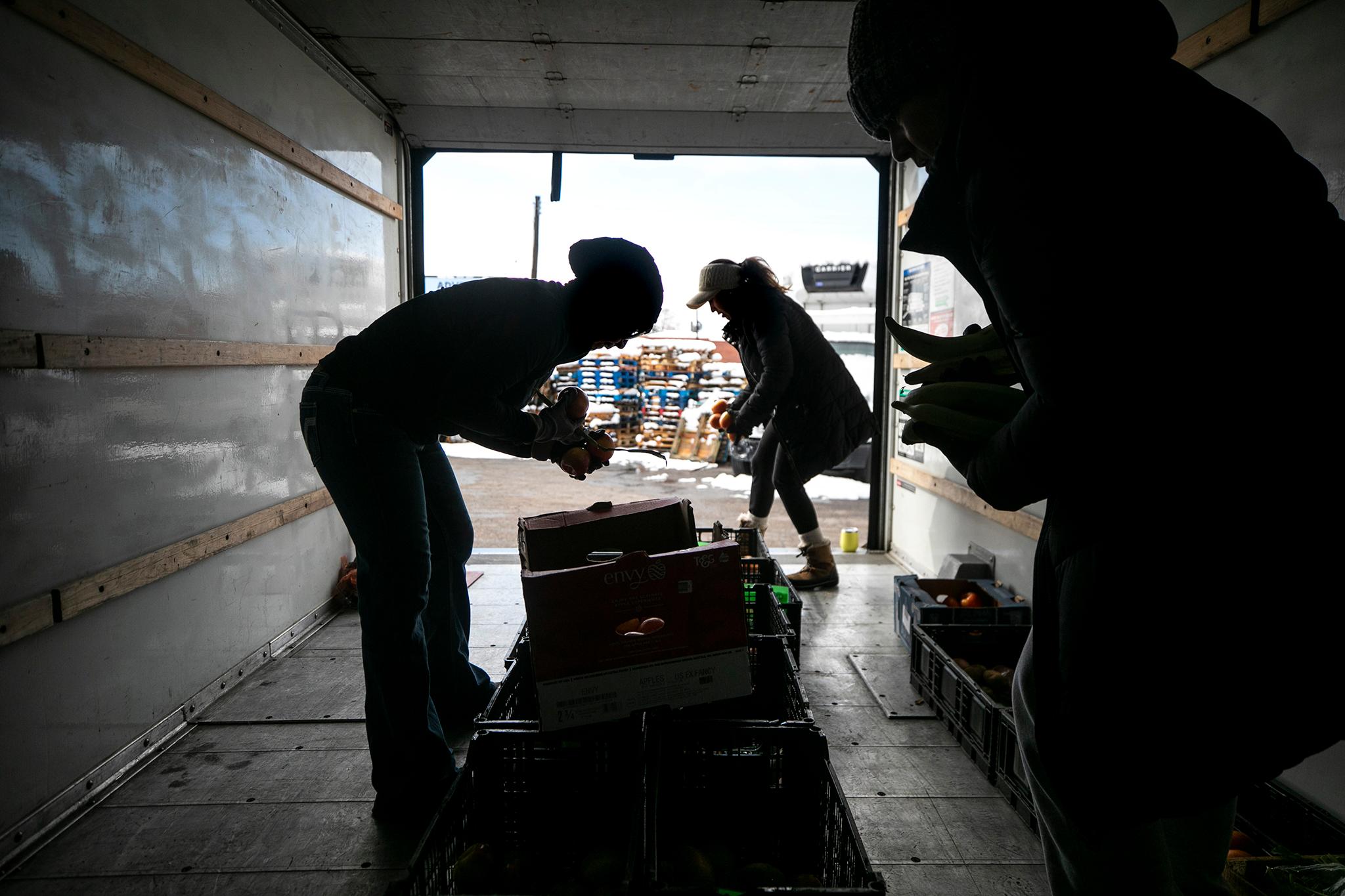
Lee esta historia en español aquí.
When Mayra came to Colorado 19 years ago with a tourist visa, she only intended to stay for a little while. She had gone to college in Mexico to get a license in computer systems administration. At age 27, she planned to learn English in the U.S. and go back to Chihuahua, a northern state that borders Texas and New Mexico, to continue her career.
She got a job in Colorado cleaning homes and offices. Then she met her husband and had a daughter. She has been in the U.S. undocumented ever since.
Mayra said violence at home had changed the living conditions and dried up opportunities there. In addition, her husband had been in the U.S. since he was very young. They both found ways to make money in Colorado and wanted their daughter to grow up here. They decided to stay.
Mayra is one of the estimated 160,000 people living without legal authorization in Colorado and 11 million in the United States.
CPR News spoke with three women who are originally from Mexico and are all in a similar position, living for decades in Colorado without legal papers, raising children here, and working to support their families. Their last names do not appear in this story to protect their identities. Their husbands, also, have worked in various areas of the construction industry, two of them undocumented and one of them under the Deferred Action for Childhood Arrivals program, known as DACA.
Since late 2022, they have all watched as tens of thousands of new immigrants have arrived in Colorado to try to make their lives here. The newcomers have received temporary housing from the city of Denver, and help with food, housing, job placement, legal services, and more from an army of volunteers and nonprofit organizations.
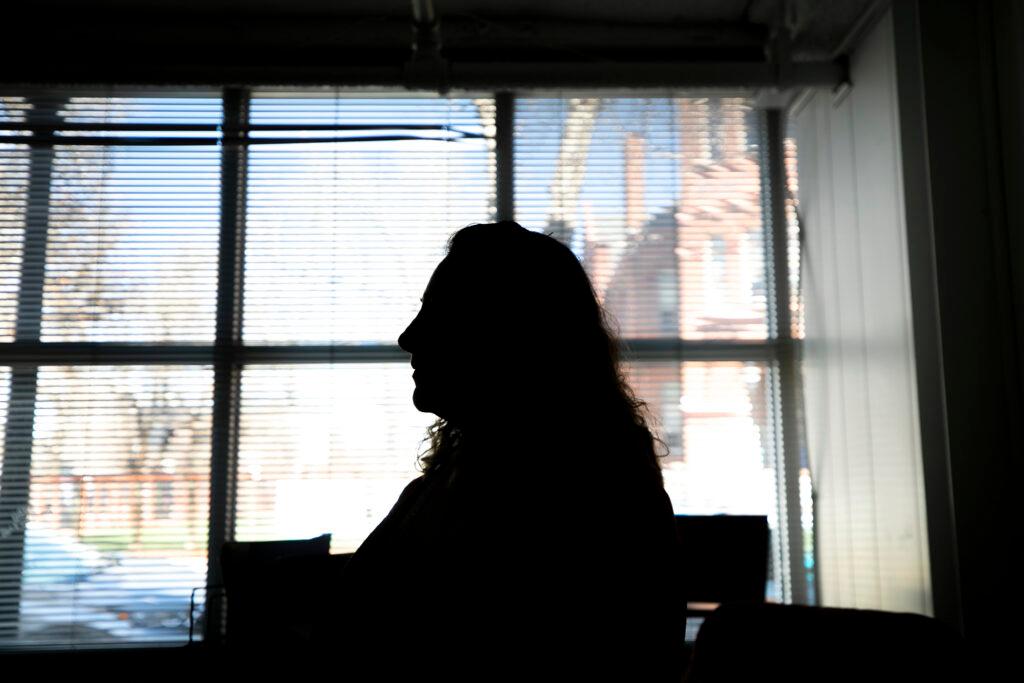
The three women who spoke about their long-term experience being undocumented in the state are part of this relief effort, as are other people who came to the U.S. decades ago and have had to find their way.
But at the same time, the attention on so many new people also leaves these women frustrated that they and others in a similar position are not recognized for their substantial contributions to the economy and the community, and have no prospects to get citizenship.
They also have words of caution for the newcomers, about what it takes to survive and thrive in the U.S. when you’re not legally welcome.
Like Mayra, Claudia only intended to stay in the U.S. for one year.
Claudia came from Chihuahua, as well. At 20 years old, the economy at home was struggling, so she wanted to earn some money and then return to Mexico. She got a job washing dishes in a restaurant in Colorado using legal documentation from a woman she knew who wasn’t working at the time. At other points, she has used fake documents to get employment.
“It was scary to go out and find a job” carrying those documents, she said in an interview in Spanish.
But she and her siblings, with whom she’d come to the U.S., found they could earn more money in the United States.
“We could live a little bit better here,” she said.
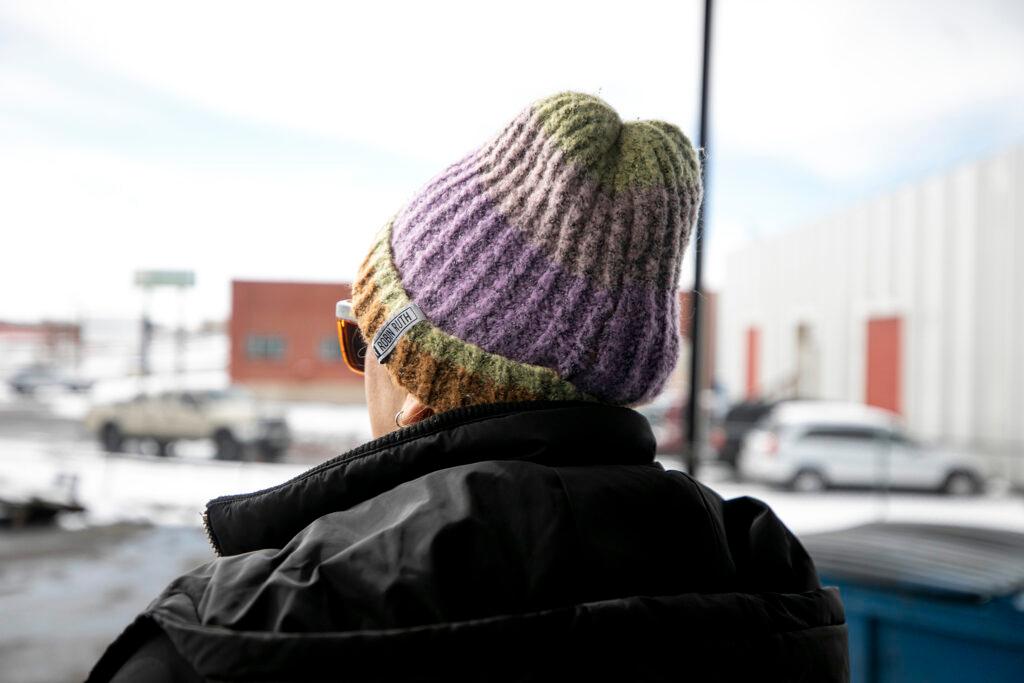
People from Mexico make up nearly half of the undocumented population in the U.S., though the number of people from Mexico living here without authorization has declined in recent years.
Claudia met her husband, who’s also from Mexico, in Colorado and they’ve had three kids. Still, just like Mayra, she has not been eligible to apply for citizenship.
When children who are U.S. citizens turn 21 years old, they can petition for their parents to get a family visa if the parent initially came through a legal means. But people who crossed the border without authorization aren’t eligible, and even for people who are, two decades is a long time to wait and success isn’t guaranteed.
The women said that new immigrants don’t necessarily understand that dynamic and that people coming over the past year have arrived with a lot of misinformation about the legal system in the U.S. While some will be eligible for Temporary Protected Status, many won’t qualify.
“I'm certain that lots of the people who have arrived recently will find that there are no legal options for them to reside in the United States lawfully,” César Cuauhtémoc García Hernández, Denver-based immigration law scholar, told CPR’s Colorado Matters recently.
Mayra’s work cleaning offices included working overnights. She also started making burritos to sell. She was disappointed to give up her career in computer systems but has now found a job at a service organization that includes teaching swimming lessons and delivering food to people in need.
She and Claudia said they pay income taxes, like many undocumented immigrants, though they’re not eligible to receive many of the benefits that other taxpayers are. Mayra added that she hasn’t enrolled in free government services like Medicaid.
While they have all found ways to make money and become part of the community, Sandra, another person who came to the U.S. 19 years ago and has lived in Colorado ever since, said they could be contributing even more.
“I’ve been asked to work in schools with students or in the kitchen, but without a Social Security number, I haven’t been able to,” she said. “Not having a Social Security number has cut off a lot of opportunities for us.”
Claudia said her husband has worked for the same construction company for 32 years, and that he’s scared to pursue other opportunities without legal authorization.
Mayra said since her husband got temporary status through DACA, he’s been able to start his own cabinetry and granite business, and that has significantly improved her family’s financial situation.
Among their advice to new immigrants in Colorado: Be prepared to work hard.
Mayra said she recognizes the journeys that people have taken to get here were arduous and traumatic in many cases, as they walked through the jungle, sometimes witnessing dead bodies. But once they get to the U.S., they should take a month to adjust, and then have the mindset that they need to get to work.
“They think the moment they arrive here, they’ll have access to everything — everything on a silver platter,” Mayra said.
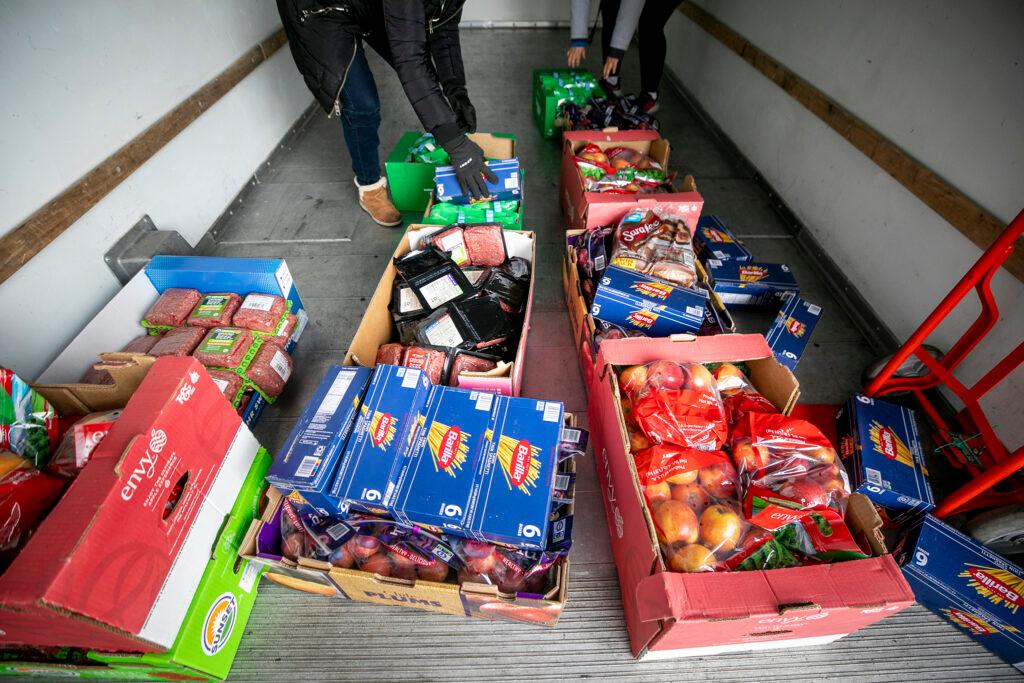
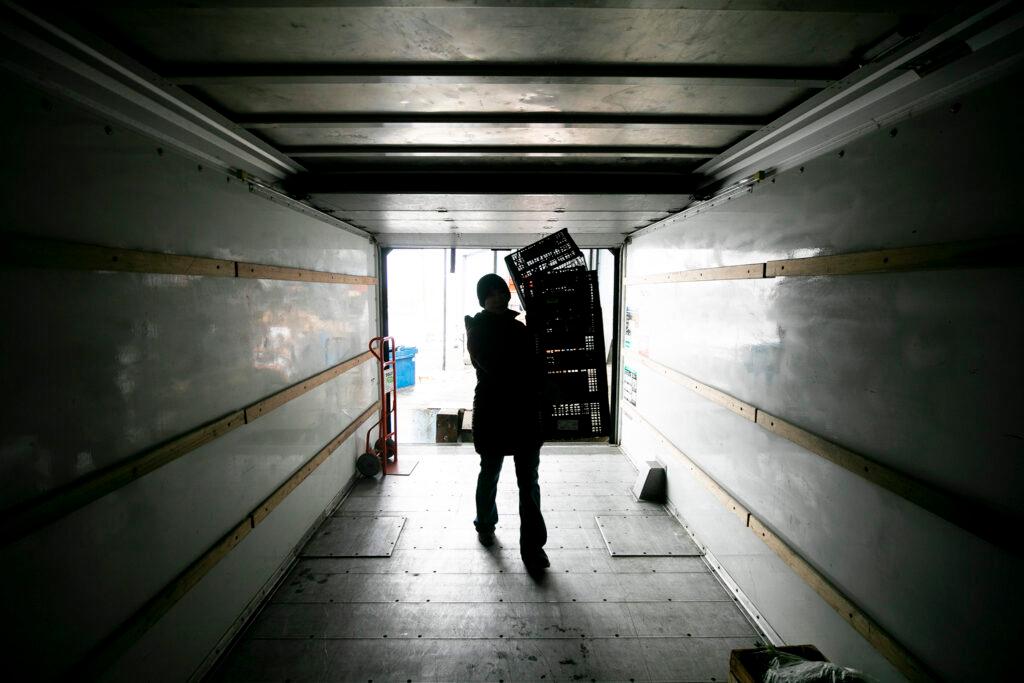
Denver has spent nearly $60 million on temporary shelter operations and has announced it’s cutting back its services.
Instead of relying on public generosity — whether from the government, nonprofits, or volunteers — Mayra advised, “Here, wherever you land, you have to work, you have to learn to live in the system that we have here to be able to support your families. It’s not show up and ask, ask, ask. You have to work hard.”
Colorado is not among the top 10 states with the largest populations of undocumented people in the U.S. But per capita, it has received the largest number of new immigrants since 2022.
Mayra acknowledges that it’s gotten harder to get work since she first arrived 19 years ago, as laws have gotten stricter around hiring people with false documents.
“But at the same time, those of us who have more time here have found ways to work, to make money and support our families,” she said.
Claudia said she meets new immigrants at the grocery store or in the shelters, and she tells them that asking for money in the parking lot won’t work. She encourages them to use whatever skills they have, whether it’s making food or crafts or something else, to earn money. She tells them to be humble and follow the rules, including learning that they shouldn’t drive without a license.
Success will come “little by little,” Claudia said. “It’s not easy.”
The women say they love living in Colorado, and it feels like home. But they wish they could have the opportunity to be here legally.
“From the moment my daughter was born and started to grow, I saw that she’d have better opportunities here. I think at that moment, I understood that Colorado was my home, and I felt comfortable and welcome — not only within the Latino community but within the Anglo community,” Sandra said.
Still, Sandra has not been able to buy a home and said doing so is more expensive and harder for people without documentation. There is a home loan program that some undocumented immigrants have used to buy homes, but it requires a 20 percent deposit, which is out of reach for some families regardless of their legal status.
“We’re a big part of the economy,” Sandra said. “And if we had the chance to get a Social Security number, in my opinion, the economy would grow a lot more, because we could buy houses and cars and open businesses.”
“We do the ‘dirty work’,” Mayra said. “We’re doing a lot of jobs that other people, who were born here or have Social Security numbers, don’t do.”
They have watched Congress debate legal protections and work permits for new immigrants, and seen President Biden offer Temporary Protected Status to people who came from Venezuela during a certain window of time. They have also witnessed Congress dismiss options that would provide a pathway to citizenship. Long-time undocumented immigrants wonder when their turn will come.
Claudia wishes the government would consider their tenure here, and take into account all of their contributions. “We’ve made connections among communities of different races. I think that, too, contributes to Denver,” Claudia said.
But Mayra said after 19 years, she doesn’t have a lot of hope that the government will provide a pathway to citizenship for people in her situation.
- Health care needs of Colorado’s new immigrant population adds strain to a hospital system already stretched thin
- New migrants face fear and loneliness. But on Colorado’s Eastern Plains, Fort Morgan has a storied support network
- Venezuelan immigrants came to Denver for a better life. Here’s why US law could get in their way







